What types of leaves are respectively shown in the given picture?

1.
Palmate and Pinnate
2.
Pinnate and Palmate
3.
Pentapinnate and Heptapinnate
4.
Heptapinnate and Pentapinnate


To unlock all the explanations of 38 chapters you need to be enrolled in MasterClass Course.

To unlock all the explanations of 38 chapters you need to be enrolled in MasterClass Course.
The phyllotaxy shown in the given picture is:
| 1. | Alternate | 2. | Opposite |
| 3. | Whorled | 4. | Random |

To unlock all the explanations of 38 chapters you need to be enrolled in MasterClass Course.

To unlock all the explanations of 38 chapters you need to be enrolled in MasterClass Course.
The diagram shows water hyacinth. It reproduces by the sub aerial modification of stem known as:
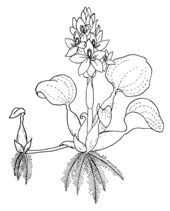
1. Runner
2. Stolon
3. Offset
4. Sucker

To unlock all the explanations of 38 chapters you need to be enrolled in MasterClass Course.

To unlock all the explanations of 38 chapters you need to be enrolled in MasterClass Course.
Match type of adhesion of stamens with example and select the correct answer from the codes given:
| Adhesion of stamens | Example | ||
| A. | Epipetalous | a. | Datura |
| B. | Epiphyllous | b. | Tulip |
| C. | Gynandrous | c. | Calotropis |
Codes
| A | B | C | |
| 1. | a | b | c |
| 2. | b | a | c |
| 3. | c | a | b |
| 4. | a | c | b |
The arrow shows structure where basal portions of the calyx, the corolla, and the stamens form a cup-shaped tube. This is called as:
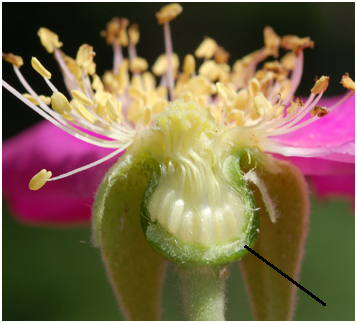
1. Thalamus
2. Gynandrophore
3. Peduncle
4. Hypanthium
A shows underwater leaves and B above water leaves in Limnophila heterophylla. This is an example of:
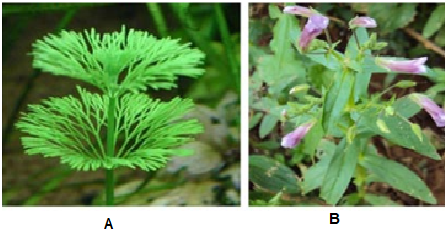
1. Norm of reaction
2. Developmental noise
3. Incomplete penetrance
4. Phenotypic plasticity
The structure shown by arrow in the given picture is called as:
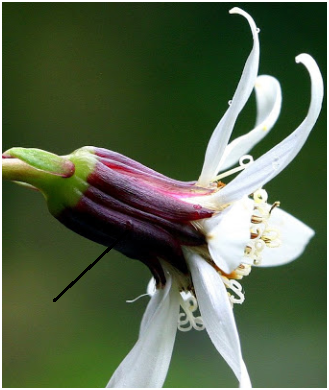
1. Involucre
2. Spathe
3. Glume
4. Epicalyx
The condition of the stamens in the given picture is:

1. Didynamous
2. Tetradynamous
3. Synandrous
4. Syngenesious
The sub-aerial modification of the stem shown below is:
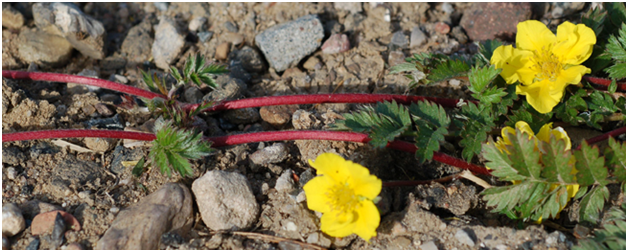
1. Stolon
2. Runner
3. Rhizome
4. Offset
What may be number of carpels in the flower shown below?
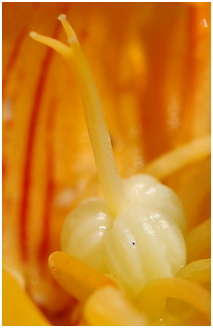
1. 1
2. 2
3. 3
4. 4







